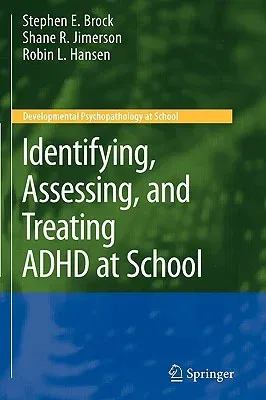ADHD is the most commonly diagnosed childhood behavioral disorder.
Moreover, many students receiving special education assistance are
reported to have ADHD. Children with ADHD may experience significant
school adjustment difficulties and achievement problems. Problem
behaviors associated with attention deficits and hyperactivity often
have a negative impact on the classroom, and, therefore, may compromise
the learning environment for many, if not all, students. There is a
critical need for school professionals to identify, assess, and treat
students with ADHD.
Identifying, Assessing, and Treating ADHD at School brings science to
practice, providing school professionals invaluable information to meet
the needs of children with ADHD. This volume, designed as a practical,
easy-to-use reference for school psychologists and other mental health
and educational professionals:
- Explains why school psychologists and their colleagues need to be
prepared and able to identify and serve students with ADHD.
- Identifies the prevalence, influences, and associated conditions.
- Provides a review of screening, referral, and diagnostic assessment
processes.
- Offers guidance on conducting psychoeducational assessments.
- Reviews evidence-based treatments.
- Offers practical guidance on setting up programs that address
individual and classroom issues.
School psychologists and other education and mental health professionals
will find Identifying, Assessing, and Treating ADHD at School an
exceptional resource in working to enhance the mental health and
academic development of students.


